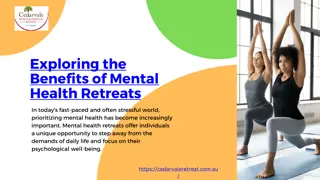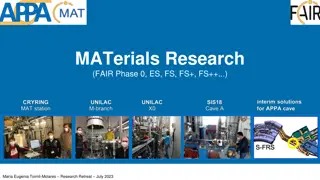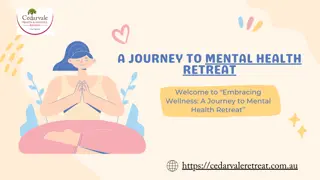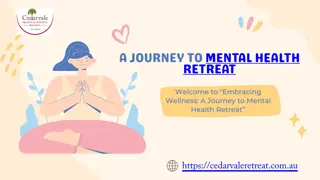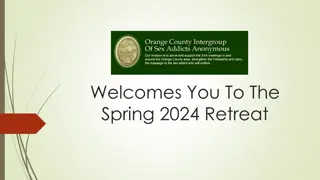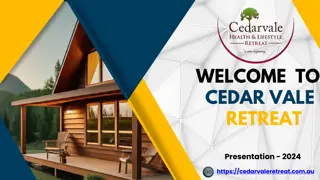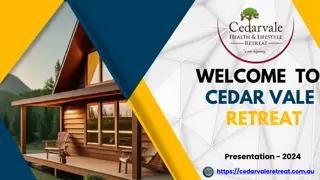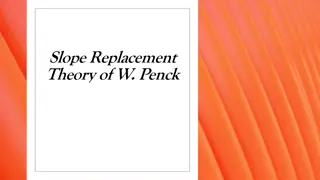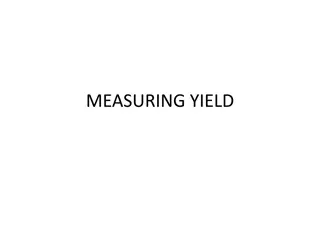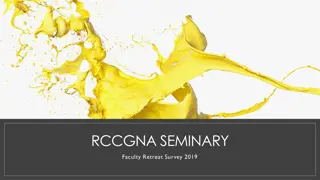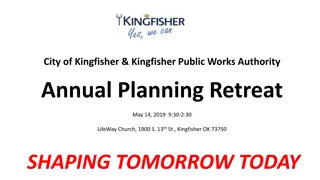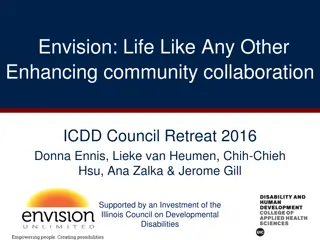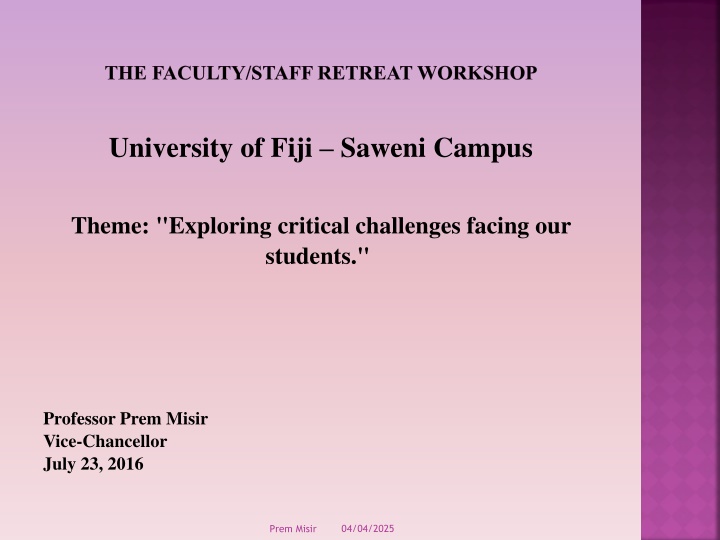
Challenges and Strategies for Student Success in Fiji's Evolving Knowledge Society
Explore the critical challenges facing students in Fiji, such as inequality and poverty, and the role of higher education institutions like the University of Fiji in promoting student success through inclusive growth and knowledge development. Understand the responsibilities of both students and the university in enhancing student learning and success in a changing educational landscape.
Download Presentation

Please find below an Image/Link to download the presentation.
The content on the website is provided AS IS for your information and personal use only. It may not be sold, licensed, or shared on other websites without obtaining consent from the author. If you encounter any issues during the download, it is possible that the publisher has removed the file from their server.
You are allowed to download the files provided on this website for personal or commercial use, subject to the condition that they are used lawfully. All files are the property of their respective owners.
The content on the website is provided AS IS for your information and personal use only. It may not be sold, licensed, or shared on other websites without obtaining consent from the author.
E N D
Presentation Transcript
THE FACULTY/STAFF RETREAT WORKSHOP University of Fiji Saweni Campus Theme: "Exploring critical challenges facing our students." Professor Prem Misir Vice-Chancellor July 23, 2016 04/04/2025 Prem Misir
FIJI EVOLVING AS A KNOWLEDGE SOCIETY (1) Persistent inequality and poverty remain a sustainable plague in many parts of the developing world, notwithstanding the presence of reasonable economic growth. Fiji approximates this picture. Its Gross Domestic Product (GDP) growth forecasted at 2.7% for 2016 is below the 3.8% average for Pacific countries (ADB, 2016). Fiji s national incidence of poverty at 31% in 2008-2009 (ADB, 2014), and its inequality, that is, its income Gini coefficient in 2013 at 42.8% (WB, 2013), were high among its Pacific neighbors. And despite the fact that Fiji increased its Human Development Index (HDI), which brings together income, access to education, health services and gender equality between 1975 (0.663) and 2004 (0.758), poverty also rose around the same time (Gounder, 2011). However, persistent poverty and income inequality have remained in Fiji, in spite of the country s favourable growth rate over the period between 2010 and 2015 averaging about 4% (WB, 2016), a sterling economic performance for an upper middle income country. 04/04/2025 Prem Misir
FIJI EVOLVING AS A KNOWLEDGE SOCIETY (2) Inequality retards both economic growth and poverty reduction (Balisacan and Pernia, 2003). Inclusive growth can reduce poverty and inequality. UNDP s Chief Economist Thangavel Palanivel Growth is inclusive when it: (i) takes place in the sectors in which the poor work (e.g., agriculture); (ii) occurs in places where the poor live (e.g., undeveloped areas with few resources); (iii) uses the factors of production that the poor possess (e.g., unskilled labor); and (iv) reduces the prices of consumption items that the poor consume (e.g., food, fuel, and clothing). 04/04/2025 Prem Misir
FIJI EVOLVING AS A KNOWLEDGE SOCIETY (3) Knowledge and not physical capital, is the source of wealth for social and economic development. This inexorable pursuit to develop new knowledge and a knowledge society has apportioned a higher status to higher education. Universities will produce new knowledge through the KBE-KBD framework, which will work toward attaining inclusive growth. 04/04/2025 Prem Misir
What students would need from the UoF to take full advantage of its resources to achieve student success? 04/04/2025 Prem Misir
STUDENT LEARNING AND SUCCESS (1) Who is responsible for student learning and success student or the UoF? From the middle of the 20th century, the dominant modus operandi in higher education was Darwinist, i.e., where a student who deserves to succeed would have the capacity to adapt to reach success. Campus ecology movement in the 1970s no-one- size-shoe fits all universities had a moral, ethical, and educational obligation to modify policies that were academically challenging and socially supportive of students. 04/04/2025 Prem Misir
STUDENT LEARNING AND SUCCESS (2)-CAMPUS ECOLOGY Modifying policies and practices were not intended to reduce academic rigor and reduce performance expectations. This modus operandi was a way to meet students needs, in order to persuade them to reach high levels, and standing by them to achieve success and advance in desired ways. Look at the graduation rates and the conclusion is clear that this modus opeerandi is not a feature of the UoF campuses. 04/04/2025 Prem Misir
A STUDENT-CENTERED APPROACH Student-centered adjustments in policies and practices require a sense of the who the students are, their academic expectations, and their expectations of the UoF and themselves. Periodic audit of policies and practices to ensure that they are operationalized in the mutual interests of students and the UoF. Keep an eye on early predictors of success satisfaction and course completion; an essential early predictor is when students indicate that they want to drop out. 04/04/2025 Prem Misir
EXPLANATIONS CRITICAL TO STUDENT LEARNING AND SUCCESS First semester toward the end of the first year: Helping students to develop meaningful goals. Students should be encouraged to say why they are at the UoF; and not merely repeat what they were told, e.g., they are at the UoF because parents want them to be at the UoF, so here they are at the UoF. Explanation should be relevant and meaningful saying that there cannot be a better university than where they are right now. Students are able to work out value of what they doing in the short-term as well as the for the future. Introductory courses- passive lecture format-unable to see connection between classes and practical relevance to society and to themselves. 04/04/2025 Prem Misir
ARTICULATING MEANINGFUL GOALS (1) Dualistic intellectual and cognitive development at that traditional age can create problems to integrate, synthesize, and apply what they are learning in different courses to their personal lives-unable to articulate meaningful goals. And not being part of any student society to connect with when faced with this dualism, can push the student to leave the university no peer group, mentors, etc. 04/04/2025 Prem Misir
ARTICULATING MEANINGFUL GOALS (2) Student employment, both on and off campus will help students to see the connection between classes and their personal lives; by doing this, they are articulating goals to see that employment has an educational purpose, and a process that could produce student success. 04/04/2025 Prem Misir
ARTICULATING MEANINGFUL GOALS (3) High-impact practices-students produce higher scores when then they engage in student/faculty interactions, active and collaborative learning, greater interaction with faculty and peers, receiving feedback. This, too, will help the students to develop meaningful goals. 04/04/2025 Prem Misir



